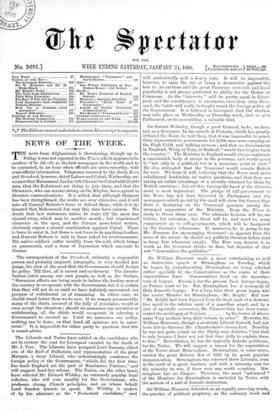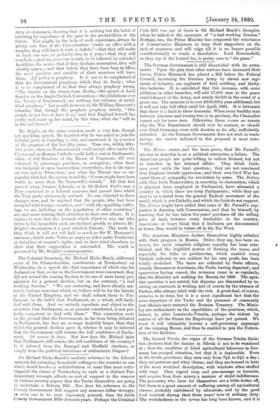Sir William Harcourt defended, in an equally amusing strain, the
practice of political prophecy, as the ordinary work and
duty of statesmen, showing that it is nothing but the habit of inferring by experience of the past to the probabilities of the future. You might, by the help of such experience, always be pretty sure that if the Conservatives " enter on office with a surplus, they will leave it with a deficit,"—that they will make at least one war, or probably two, in a year,—that they will conclude a glorious peace one month, to be followed by extended hostilities the next,—that if they disclaim annexation, they will shortly annex,—and that before they have been long in office, the most prudent and sensible of their members will leave them. All policy is prophecy. It is not to be complained of that the Government prophesy, which they do freely ; what is to be complained of is, that they always prophesy wrong. " The tirades on the return from Berlin,—the speech of Lord Sandon on the Anglo-Turkish Convention,—the jubilations over the Treaty of Gundamuck, are nothing but volumes of unful- filled prophecy." Let us add, however, to Sir William Harcourt's remarks, that though the prophets prophesy falsely, "this people do not love to have it so," and that England herself has pretty well made up her mind, by this time, what she " will do in the end thereof."



































